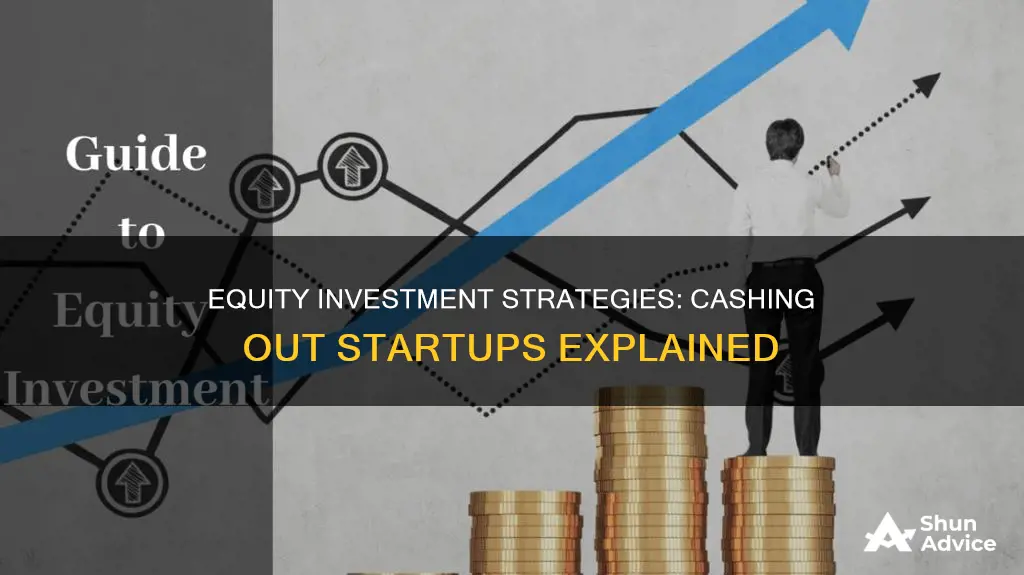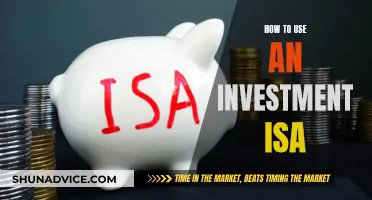
Entrepreneurs often encounter the question of how to cash out and recapture the value created by their startup. This process can be complex and depends on several factors, including the traction of the business, investor relationships, and data. One option for cashing out is to sell off assets, such as equipment, real estate, or intellectual property. Another option is to take the company public through an IPO, although this requires meeting specific financial criteria and can be challenging during difficult economic times. An increasingly common exit strategy is to be acquired by a larger company, either as part of their growth strategy or to bundle multiple companies for a larger acquisition. Entrepreneurs can also consider selling their equity ownership to new investors, although this may require a discount on their shares. It is important to carefully plan for potential value, costs, and tax considerations when cashing out, and to seek expert advice when necessary.
Characteristics of Equity Investment with Cash Out Startup
| Characteristics | Values |
|---|---|
| Definition | A process where startup founders or early employees sell a portion of their capital stake in the company to investors or third parties. |
| Reasons | To alleviate financial pressure, fund personal expenses, or gain financial freedom. |
| Types | Primary sale of shares to investors, secondary sale of shares to new investors or third parties, or buyback by the company itself. |
| Considerations | Impact on company's valuation, tax implications, investor competition, timing, and compliance with securities laws. |
| Challenges | Limited cashing out options, investor expectations, impact on company growth, and personal financial management. |
| Alternatives | Mergers and acquisitions (M&A), public listing (IPO), or secondary market sales. |
What You'll Learn

Private sales of startup equity
Conducting private sales can offer several benefits to startups:
- Access to strategic partners: Private sales enable startups to connect with investors who bring more to the table than just financial investment. These investors may offer industry expertise, network connections, marketing support, or technical guidance. They can also help the startup gain credibility and exposure in the market.
- Flexibility and control: Private sales give startups greater freedom and autonomy over their fundraising process. They can negotiate individually with investors and tailor the deal to their specific needs and goals.
- Efficiency and speed: Private sales are often faster and less complex to execute than other forms of fundraising due to fewer regulatory and legal requirements. This saves time and resources that can be channelled into product development and customer acquisition.
- Validation and feedback: Private sales allow startups to test market demand and customer response before a public launch, providing valuable feedback and validation for their product or service.
Some examples of successful private sales include Filecoin, Telegram and Binance. In 2017, Filecoin raised $52 million in a private sale from prominent investors, followed by a public sale that brought in $205 million, making it one of the largest token sales in history. Telegram, a popular messaging app, raised $1.7 billion in a private sale in 2018 from 200 accredited investors, including venture capitalists and hedge funds. However, the project they intended to fund was later abandoned due to regulatory issues. Binance, a leading cryptocurrency exchange, raised $15 million in a private sale in 2017, selling 100 million Binance Coin (BNB) at $0.15 per token. The value of BNB has since increased significantly, reflecting the potential for substantial returns.
While private sales offer numerous advantages, it's important to be mindful of certain challenges and risks:
- Legal and regulatory compliance: Private sales are subject to various laws and regulations that differ based on jurisdiction, the nature of the securities, and the identity of investors. Non-compliance can result in fines, penalties, or even criminal charges.
- Valuation and pricing: Determining the valuation and pricing of securities offered can be challenging and may impact the business's future prospects.
- Investor relations and expectations: Managing relationships with investors who may have differing goals and expectations can be complex. Some investors may seek quick returns, while others may desire long-term involvement or influence.
Overall, private sales of startup equity can be a powerful strategy for startups to raise funds, attract customers, and validate their products. However, careful planning, execution, and management are essential to ensure a successful outcome.
Cash or Invest: Where Should Your Money Go?
You may want to see also

Secondary sales
A "secondary" sale, or "secondary", is when a shareholder of a private company sells their shares to another buyer. Typically, the seller is one of the founders, an early employee, or an early investor. Secondaries usually occur when the startup has achieved significant revenue or market traction and is on its way to an IPO or major sale.
A secondary sale is distinguished from a "primary" sale, in which a company issues new shares to investors, and the proceeds from the sale go directly to the company. In a secondary sale, the proceeds go to the shareholder selling their shares.
The popularity of secondary sales has increased in recent years, particularly in Silicon Valley, due to a decrease in IPOs since the 2008 financial crash. As startups are staying private for longer, early founders and employees are unable to gain liquidity for their shares, even if the company is performing well.
There are various buyers for secondary sales, including existing and new investors, matching websites and micro funds, secondary-specific funds, and private investors.
When considering a secondary sale, it is important to be aware of certain factors that can complicate the process, such as the company's right of first refusal, breakup fees, co-sale rights, and restrictions on shares. It is also important to consider the valuation of the shares, accounting and tax implications, regulatory and legal requirements, and potential HR challenges.
Allowing founders and employees to sell their shares through secondary sales can provide them with financial stability and improve morale, while also bringing in new cash and experience to the company.
Cash App Investing: Legit or Scam?
You may want to see also

Mergers and acquisitions
The process for employees in an M&A scenario will vary from company to company, but it will mostly be handled by the company. The board and the acquiring firm set all terms, and individual employees cannot negotiate the price of their shares. There may be other conditions to meet before receiving the cash owed, such as staying with the company for a specified period. Vesting acceleration clauses may not always apply in M&A situations, and an employee's vesting schedule may transfer to the acquiring company.
To access their money post-acquisition, employees may need to wait for another liquidity event, such as an IPO or another acquisition. In a share-based acquisition, employees may need to wait for the acquiring company's IPO before they can sell their shares on the public stock market. However, employees will usually be subject to a lock-up period of 90-180 days before they can sell their shares.
It's important to note that IPOs in Europe are becoming less common, with many startups delaying their plans due to the current macroeconomic situation. As a result, employees may need to explore other options, such as the secondaries market, to cash out their shares.
Securities Sales: Investment Activity or Cash Flow?
You may want to see also

Public listing
A public listing is a way for a company to raise cash and fund growth. A company that is publicly listed is one that has issued shares of its stock for trading on a stock exchange. These shares are then bought and sold by investors, with the value of the shares rising or falling according to demand.
To become publicly listed, a company must meet the requirements of a stock exchange, such as the New York Stock Exchange (NYSE) or Nasdaq, and be accepted for trading. The requirements typically include minimum levels of cash flow and company assets, as well as standards of corporate governance.
Once a company is publicly listed, it must continue to meet the qualifications of the exchange or risk being delisted. Publicly listed companies are required to submit regular financial statements to the Securities and Exchange Commission (SEC) and their shareholders. They must also adhere to the exchange's rules and the SEC's regulations.
The process of becoming publicly listed and launching an initial public offering (IPO) is long and arduous. It involves attracting early private investors, building and refining the product, and creating a business plan. The company must also prepare a package of financial statements and gain approval from the SEC.
Following this, the company's founders will sell their plan to institutional investors and the financial media. Once a company has been accepted for listing on an exchange, it can set a share price and a date for its IPO. If the IPO is successful, the company receives a large sum of cash to invest in its expansion and reward its founders and early investors.
Cash Reserves Investments: A Safe Haven for Your Money
You may want to see also

The secondaries market
There are several types of secondary transactions:
- LP secondary transactions: The most common type, where an existing Limited Partner sells its assets to a secondary buyer who then assumes all rights and obligations.
- GP-led transactions: When a General Partner needs to extend the investment period of a fund that has reached the end of its life, portfolio companies are moved to a new fund vehicle, and existing Limited Partners can choose to 'roll over' or cash out to a secondary buyer.
- Direct secondary transactions: The trade of directly-held ownership interest in a company from Limited Partners to an existing investor.
The benefits of the secondaries market include:
- Access to liquidity: Sellers can gain liquidity by selling their stakes, creating a stream of cash that can be deployed into new investments or to meet urgent capital needs.
- Faster returns: Investing in a private equity fund secondary can provide faster returns for buyers compared to primary investments, although this is reflected in the purchase price.
- Mitigating Blind Pool Risk: In secondaries, investors put their money into companies with an established track record, allowing them to analyse past performance and calculate future value potential.
For startup founders, a secondary transaction can be a way to sell a portion of their capital stake in the company to a lead investor or new investor while retaining their role in the company. This approach has become increasingly popular in later-stage startups, allowing founders to relieve financial pressure while maintaining sufficient equity to stay motivated and continue growing the business.
Creating a Cash Flow for Investing: A Beginner's Guide
You may want to see also
Frequently asked questions
Equity investment refers to the process of investing money into a business in exchange for ownership stakes, or equity, in the company.
There are two main ways to cash out your equity in a startup: an exit event, such as a public listing or acquisition, or the secondaries market. The secondaries market allows shareholders to sell their private company stocks to other investors.
A secondary is when an existing stockholder of a private company sells all or a portion of their stock to another investor or third party.
You can sell your equity in a startup with cash out by finding a buyer who has the funds and is likely to be approved by the company. This can be done through a brokerage or an investment bank.
Some things to consider before selling your equity in a startup include the tax implications, the impact on the company's eligibility to issue QSBS stock, and any restrictions or investor protections in place. It is also important to seek board approval and stockholder approval if necessary.







